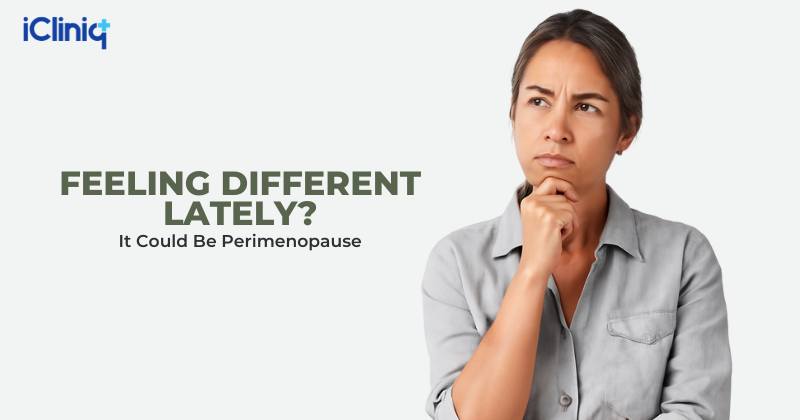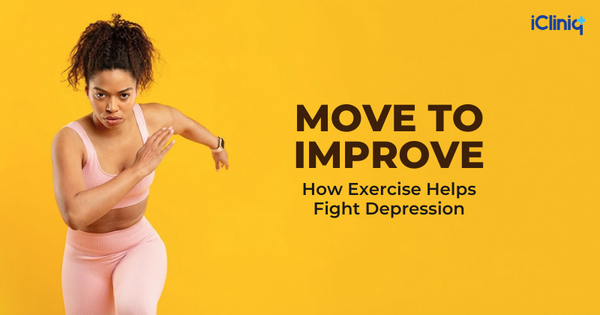Feeling Different Lately? It Could Be Perimenopause

Perimenopause, which typically starts in a woman's 40s, is a natural and yet not well-understood transition of time and space marked by fluctuating hormones that change your body, your mood, and your mind - many women experience changing and confusing symptoms without a clear understanding of what is happening.
When you recognize this transition, you can advocate for yourself, make some lifestyle changes, and take control of your health. You can begin this way - with recognition and self-compassion, you will feel more confident and stronger on your journey.
What Is Perimenopause?
Perimenopause is the lead-up to menopause, which is the point when you have gone 12 consecutive months without a period. This transition phase typically begins in your late 30s to mid-40s and can last anywhere from 4 to 8 years. During this time, hormone levels swing unpredictably, often causing irregular periods, heavier or lighter flow, and other physical and emotional changes. You are still having periods, but they are no longer regular. If menopause is the destination, perimenopause is the winding, bumpy road that gets you there.
Recognizing the Symptoms
Symptoms during perimenopause go far beyond the classic hot flashes. Many women report mood swings, sleep disturbances, night sweats, brain fog, fatigue, joint pain, decreased libido, and weight gain, especially around the midsection. These can vary dramatically from person to person.
One woman may experience devastating fatigue and brain fog, while another may feel emotionally unsettled but physically well. These feelings are not imagined; if they impact your quality of life, they need to be addressed, not dismissed as a normal part of aging.
The Rollercoaster of Emotions
There is a complex biological interplay that occurs due to the hormonal changes of perimenopause and the associations with mental wellness. Estrogen and progesterone change how neurons make chemicals in the brain, like serotonin and dopamine, which regulate mood and emotional wellness.
It is common to experience anxiety, sadness, irritability, fatigue, and being overwhelmed due to fluctuations in hormones. You may cry unexpectedly, second-guess yourself constantly, or feel completely unlike yourself. These reactions are not personal shortcomings; they are biological responses. Realizing this can make it easier to delegate self-judgment and to offer self-compassion.
Why Does This Phase Matter for Your Long-Term Health?
Perimenopause can be more than uncomfortable; it can also be a wake-up call. The loss of estrogen impacts your bones, heart, metabolism, and possibly even your skin. Bone loss occurs at an accelerated rate, there is a greater risk of heart disease, and people redistribute fat toward their midsections.
Nonetheless, this transitional phase may represent a crucial opportunity for prevention. The perimenopause period is an essential time to plant some seeds of strength training, heart health, and preventative screening (blood pressure, cholesterol, bone density, etc) that can protect your health for years, if not decades, to come.
Firing Up: Active Management
Successfully managing your perimenopause requires several lifestyle changes in addition to medical support. Movement, restorative sleep, stress management, and a healthy diet will be important. Hormone therapy, supplements, and/or medical treatment may also specifically assist with some symptoms. Using an app or journal to track your symptoms can help you recognize patterns and improve your conversations with your doctor. Be specific and describe your symptoms quite literally. You will receive more targeted support.
Perimenopause is a significant life transition; it is not a diagnosis that you need to suffer through. You can navigate the experience of this period of life with strength, clarity, and confidence. You do not have to walk this journey alone. You are not alone.





